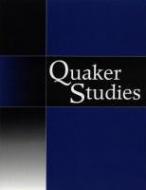
Abstract
Samuel Johnson liked some individual Quakers but disliked the sect; an examination of his encounters with them, as reported in Boswell's Life, along with reminiscences of the Lloyd family, Mary Knowles and Anna Seward, throws significant light on both Johnson's religious and social views and on some aspects of the Quakerism of his time. The commonly-held view of Quakerism in the Quietist period is, in W. C. Braithwaite's phrase, that these were 'years of outward respectability and inward spiritual decline'. He adds that 'religion as a whole was suffering from the lassitude of Dissent and the devastations of Deism'. Kathryn Damiano challenges many of these perceptions of the Quietist period, arguing that the process of spiritual formation for Friends of this period combined both the negative way, denial of the world, the disciplines of silence, waiting, plainness, and the affirmative way sustained by the community of faith, which encourages faithfulness, transformation and nurture of the inward life. These issues underscore aspects of Quakerism which most trouble Johnson, notably the participation of women in vocal ministry, trust in the leading of an inward light, and the emphasis on the authority of the individual conscience. Boswell, Knowles and Seward each report Johnson's vehement denunciation of a young woman who has become a Quaker. It is clear that death and the final judgment-about which the company had been talking-terrified Johnson. In his attack on Mary Knowles and her protegee, we are seeing that terror being expressed for the young woman, whose immortal soul Johnson believes she has frivolously put at risk. For Johnson, there is no greater danger to one's immortal soul than departing from the faith one was born into. He feared standing before the Almighty and justifYing himself on his knowledge, rather than on his obedience. Providence has placed each of us, and obedience to what has been given one, is safety. Mary Knowles argues that God will understand and forgive human error and look only at whether we follow conscience, mistaken or not. Even these brief glimpses of Quaker lives reveal nuances to the conventional views of eighteenth-century Quakerism. Mary Knowles in particular evidences a far more energetic faith than portrayed by W.C. Braithwaite; in her we see a strong, independent, well-educated woman, capable of inspiring an admiration of Quakerism in others, able to move easily and gracefully and with sincerity within the Society of Friends and between it and the sophisticated literary world of Samuel Johnson.
Recommended Citation
Lacey, Paul A.
(2002)
"Like a dog Walking on its Hind Legs: Samuel Johnson and Quakers,"
Quaker Studies: Vol. 6:
Iss.
2, Article 3.
Available at:
https://digitalcommons.georgefox.edu/quakerstudies/vol6/iss2/3
